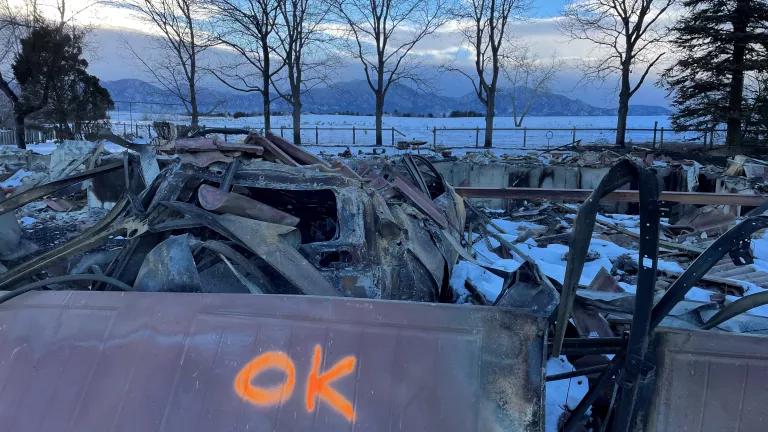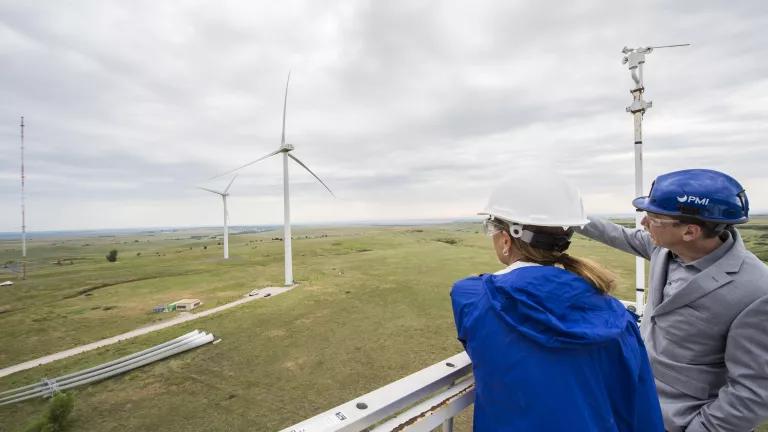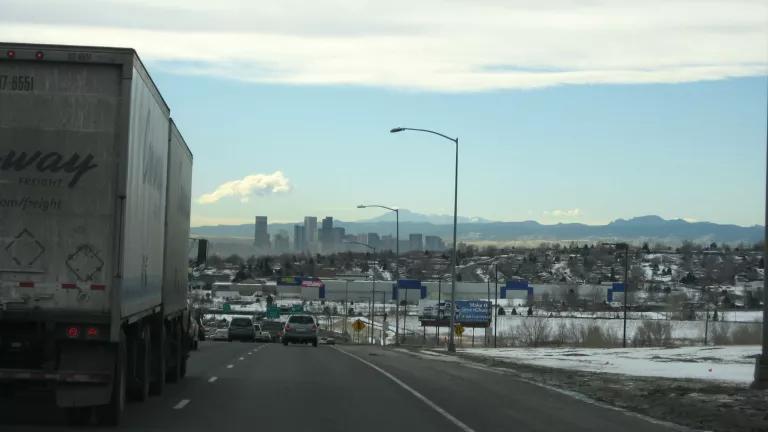Colorado Utility Commission Should Reject Xcel’s Settlement
The Colorado Public Utility Commission will soon vote on a proposed settlement in Xcel’s resource planning case. They should reject it.

Remains of Susan's home after the Marshall Fire in December 2021
Xcel wants customers to foot the bill for a settlement in its resource plan that is more expensive and more polluting than alternatives. Customers cannot afford the increased costs of Xcel’s proposed settlement, and our climate cannot afford the missed opportunities to reduce emissions.
On issue after issue, the settlement favors continued use of coal and fossil gas over cleaner and cheaper resources. The proposed settlement misses opportunities to decrease customer costs and emissions through demand response, renewables and storage, and regional transmission projects and markets. Perhaps most importantly, the settlement asks the Commission to lock in operation of Colorado’s largest source of pollution, the 750 MW Comanche 3 coal unit in Pueblo, until 2035.
Closing Comanche 3—which has been plagued by reliability issues—is a better and cheaper way to reduce greenhouse gas emissions, reduce bills for utility customers, and accelerate just transition planning in coal communities. In fact, the Commission can save $300 million in direct costs and 4 million tons of carbon emissions by closing the plant by the end of 2027 and converting the Pawnee coal plant to gas.
The Commission should share those savings with the communities where coal plants are closing through workforce and community investment plans. The Commission also has the chance to support a meaningful and economically vibrant transition away from coal through required tax-replacement payments to affected communities, a requirement to not lay off workers, and locating new clean energy investments in communities with retiring coal plants.
The settlement instead proposes to delay Comanche 3 retirement until 2035, a decision that ignores both economic trends and the urgency of the climate crisis. Despite the coal unit’s many operational problems, Xcel would like to prohibit the Commission from revisiting the retirement date in future resource plans and guarantee that the utility can recover costs from the coal plant for the next 13 years.
In the proposed settlement, Xcel also asks the Commission to guarantee that the company will own at least $626 million in new assets to replace Comanche 3. The statute requires the Commission to target a 50/50 utility and third party ownership structure, while evaluating customer costs and benefits.
Because coal is no longer a cost-effective way to generate electricity, extending the Comanche 3 retirement will increase costs for Xcel customers by approximately $300 million in direct costs and $500 million when carbon costs are considered, according to analysis on the record in the proceeding. The settlement also delays conversion of the 500 MW Pawnee coal plant, further increasing emissions and costs.
Independent analysis done for NRDC and the Sierra Club’s intervention in the resource plan shows that the Commission could provide certainty for coal communities and open the door to investment by requiring Xcel to retire and replace Comanche 3 by the end of 2027 and repower Pawnee to run on gas by the end of 2024, leaving open the possibility of replacing it with even cleaner fuels in the future.
Given that Comanche 3 is the single largest stationary source of greenhouse gas emissions in the state, the environmental benefits of this decision would be profound, cutting the utility’s emissions by over 90% from 2005 levels. This represents a reduction of 4 million more tons than the Xcel settlement proposal- and many of the alleged emissions reductions from the settlement proposal are uncertain and unenforceable.
The proposed settlement is too expensive, too polluting, and will prolong economic uncertainty in coal communities. The commission should instead move decisively towards a clean energy transition.
Additional resources:
- More information on alternative proposal to reduce emissions and save money
- PUC hearing recording
- Hearing Exhibit 1412, Settlement Testimony of Tyler Comings on Behalf of Conservation Coalition.pdf
- Hearing Exhibit 1411, Settlement Testimony of Dr. Maria Roumpani for Conservation Coalition.pdf
- Hearing Exhibit 1410, Settlement Testimony of Noah Long on Behalf of Conservation Coalition.pdf



